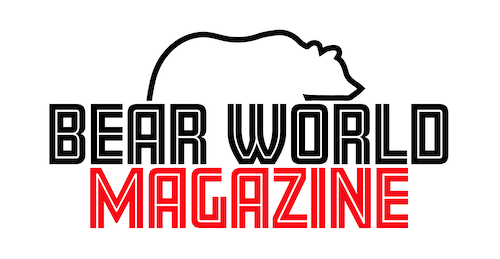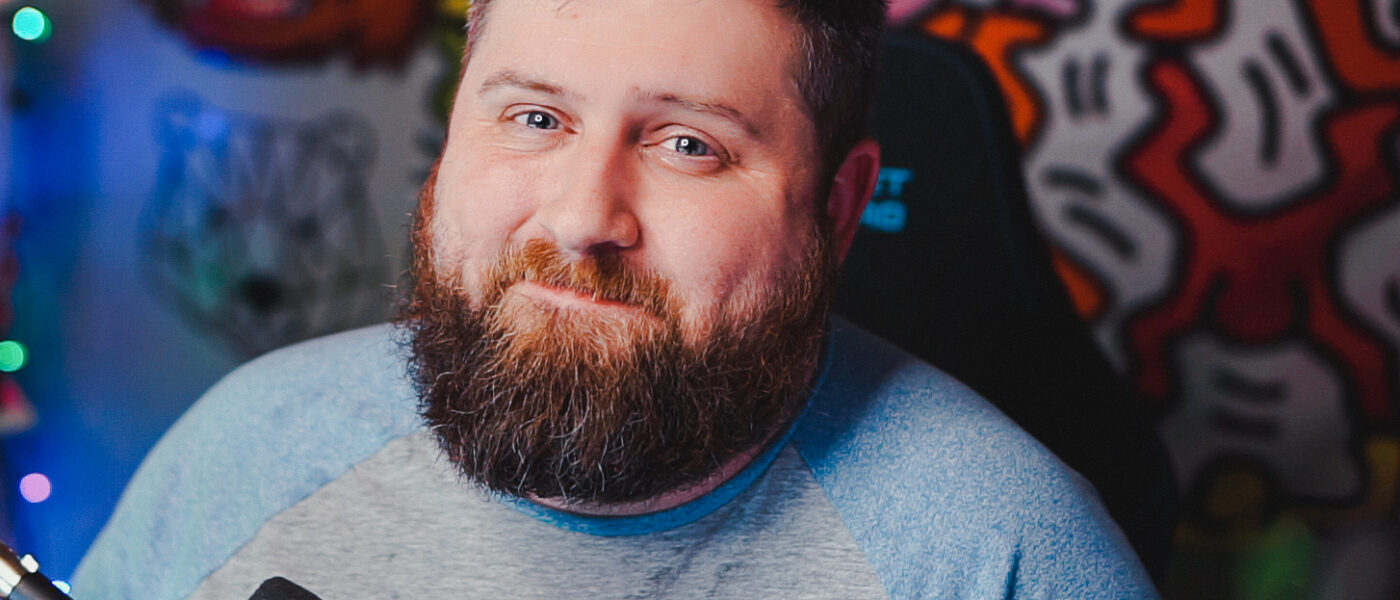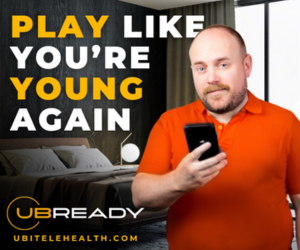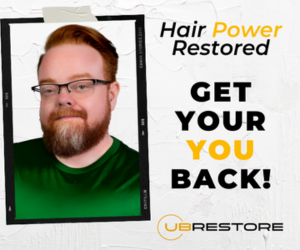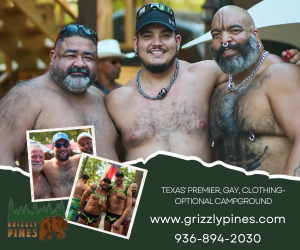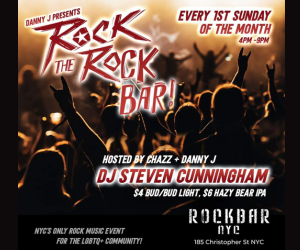Dr. Daniel Deason: Tips on How to Immediately Improve Your Mental Health
As joyful as being a bear can be, we all know there are some aspects of the scene that can be less than desirable. Be it a lack of diversity at certain events, body shaming or ridicule over relationship status, there are many pain points in the life of a bear that can have a negative impact on our mental health.
Luckily, going forward we will all have the benefit of Dr. Daniel Deason’s knowledge. He is a working psychologist with expertise in LGBT+ mental health issues. Currently working with veterans in Chicago, Dr. Dan has graciously agreed to be Bear World Magazine’s mental health correspondent to help us navigate some of the issues we as bears encounter in our day-to-day lives.
When not seeing clients, Daniel is an avid gaymer, streaming on Twitch under the moniker GRZLY (formerly DrGRZLY). There you can watch him play a wide variety of video games while interacting with other gamers and even talking about mental health.
Before we start engaging with Dr. Dan on specific mental health issues and questions, I wanted to properly introduce him to you. Here is our conversation where we discuss what led him into the psychological field, the bear community and what steps we can take now to improve our mental health.
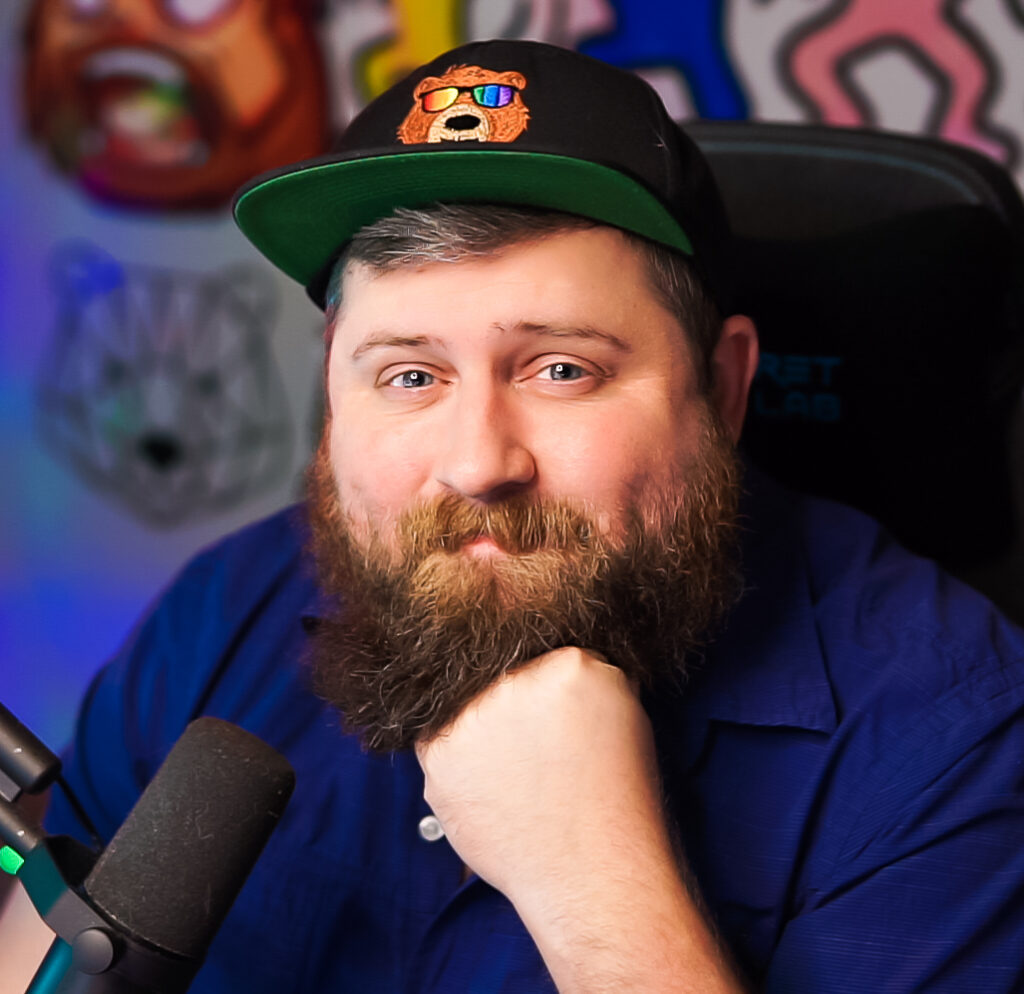
John Hernandez: Hello Dr Dan!! Thank you so much for taking the time to introduce yourself to the Bear World readers and for being our mental health guru going forward. Your Twitter bio indicates that you are an LGBT mental health expert. What exactly does that mean?
Daniel Deason: My expertise in LGBT mental health comes from doing a lot of research in that area and being gay myself while continually trying to understand and learn more about what it is to be queer, especially in terms of our mental health.
A lot of my research in graduate school was on gay identity in general. And a lot of the work I did immediately after graduate school was around queerness. My first job out of grad school was working at the University of Mississippi. You can imagine what it’s like to be gay in Mississippi, especially in a rural community. I was pretty much the only openly gay mental health professional on the whole campus. So basically, I was assigned all the gay students, which I loved because I remembered what it was like when I was in college, trying to figure out being gay. I grew up in Oklahoma which is another place that is not super accepting, so I didn’t really have anyone to talk to or ask about things either.
John Hernandez: You mentioned getting your PhD at the University of Mississippi, where did you get your undergrad?
Daniel Deason: My undergraduate years were spent at Oklahoma State University where I got my BA degree in psychology. From there, I went to the University of Southern Mississippi for my Masters and PhD which is in counseling psychology. After that I did my predoctoral internship at the University of Memphis in the counseling center.
John Hernandez: And what made you want to become a psychologist?
Daniel Deason: My mother was a therapist, so I had some interaction with mental health as a kid. I remember my mom practicing with me because she was really into working with children and I was very young when she was going to graduate school. Of course, she wasn’t performing actual therapy, just practicing the techniques used in, say, play therapy.
And then of course in college I really struggled with understanding my identity, since I grew up in Oklahoma and in a religious household. I was in a fraternity in college which was very hyper masculine and very heterosexual, you know. So, it was a lot of identity clashing for me, and trying to figure that out. I would love to have had like an openly gay therapist or something on campus, just to talk with and so I pursued that career path.
That is why I love streaming and doing stuff like we’re going to be doing for Bear World Magazine. I love educational things because you just never know when the right article, or clip, or something, might reach the right person when they need it most.
John Hernandez: That’s very noble. It reminds me of that quote from Mahatma Gandhi “Be the change you wish to see in the world”. What school of psychological thought do you subscribe to?
Daniel Deason: I’m trained as a generalist, so I don’t really have too many super specific specialty areas, that’s just kind of the way my program was. But for me primarily I would say, a mix between cognitive behavioral and interpersonal psychology. Also a little bit of gestalt, just like a smidgen of that because I just think it’s really cool and I think it’s just has a lot of value to offer. The last one I would pick is narrative therapy.
John Hernandez: oh interesting! What’s that?
Daniel Deason: Basically, it’s telling your own life story and how you navigate telling that story, the words that you use ,the way you relate to the world around you and how you feel the world relates to you – that sort of thing. The only one I don’t really dabble with is psychodynamic therapy, you know that kind of Freudian type stuff. That’s not really for me…
John Hernandez: I get that (laughs) Freud had some pretty….interesting theories. I bet he’d have lots of thoughts on the bear community. Speaking of which, what led you to the bear community and your identity as a bear?
Daniel Deason: I was in college, so it was between 2008 and 2012, and I think that was my first time foraying into the gay side of the Internet (laughs). So, I think Bear411 was my first exposure to what a bear was. I was always a heavier-set kind of person, especially in comparison to other people my age. In my fraternity everyone was really chiseled and hyper into working out and stuff that really wasn’t for me.
It was like, “Oh, these are guys that I kind of look like”. People that I can relate to, you know, especially in terms of early life experiences, maybe being picked on a bit for our weight or just for looking different or talking a little bit differently, things like that. And then as I got a little older, got more facial hair, you know, stuff like that, I started gravitating towards spaces where I saw men that looked like me or at least had some shared experiences in that way.
I haven’t been as active in the Bear community as I would like. Living in Oklahoma and then rural Mississippi made it tough. For a while I never lived in a place that had a lot of gay people around me to really socialize so it was all very Internet based, which is how I got to streaming really, because I was just so isolated from other gay people. It was a way to at least kind of build a community and build friendships and things like that. I live in Chicago now, which is obviously a much different place in terms of like just how many gay people there are, especially bears, so I’m still kind of adjusting to that.
John Hernandez: Oh my God! You must be in HEAVEN in Chicago right now!! (Laughs) And also you took me way back with Bear411! I still check in from time to time but I think it’s where a lot of us got our start. So, what are some of the mental health issues that you think are specific to bears?
Daniel Deason: That’s a good question. And I haven’t really sat down and given a ton of thought to this just yet, but I imagine body image related issues are something our community deals with. I would imagine it affects not only bears but also gay men in general; and as an extension of that probably things like eating behaviors, how we navigate our relationship to food, and what it means to us.
I also think many of us were affected by growing up in households where we couldn’t really be ourselves. It’s like many of us had to generate these masks just to keep ourselves safe. And I think, at least for me personally, and for a lot of gay men I’ve seen in a professional sense, it’s made it really hard to have organic and authentic relationships as adults because we’ve been so used to code switching throughout our lives.
We encounter issues in dating and romance as well because we couldn’t necessarily date as other people did in high school, or even college. We aren’t encountering the throes of difficult first relationships, until like our mid-20’s. All those early dating experiences and relationships help us to figure out what are the things that we like in other people? What are the things that we value in relationships? How do we identify red flags in a potential partner versus green flags? A lot of that is typically done developmentally in your teenage years when you have parental support and family, and many of us did not grow up with that.
John Hernandez: Great answer. And what tips can you offer bears to help improve their mental health?
Daniel Deason: I think it’s a really about being intentional with it. Instead of just saying it, it’s actually sitting down and making the time to offer yourself self-care or to purposely, with intention, engage in things that you know will be beneficial for your mental health, like going to therapy, for example, or trying to be social with other people. Perhaps meditation or just beathing. I think people really underestimate the power of breathing.
Its also about identifying the things that worsen your mental health. It might mean avoiding social media and definitely avoid comparing yourself to other people.
John Hernandez: That’s a good point about social media! Well, Dr. Dan, I don’t want to give up all the good stuff in the first go ‘round (laughs). Thank you so much for the chat and I cannot wait to see what you bring to the magazine!
Do you have a question or topic you’d like us to address with Dr. Dan? Submit your questions to editor@bearworldmagazine.com
Follow Dr. Dan on Instagram, Twitter, and Twitch.
***Disclaimer: You must not rely on the information on this website as an alternative to medical advice from your doctor or other professional healthcare provider. If you have any specific questions about any medical matter you should consult your doctor or other professional healthcare provider. If you think you may be suffering from any medical condition you should seek immediate medical attention. You should never delay seeking medical advice, disregard medical advice, or discontinue medical treatment because of information on this website.
